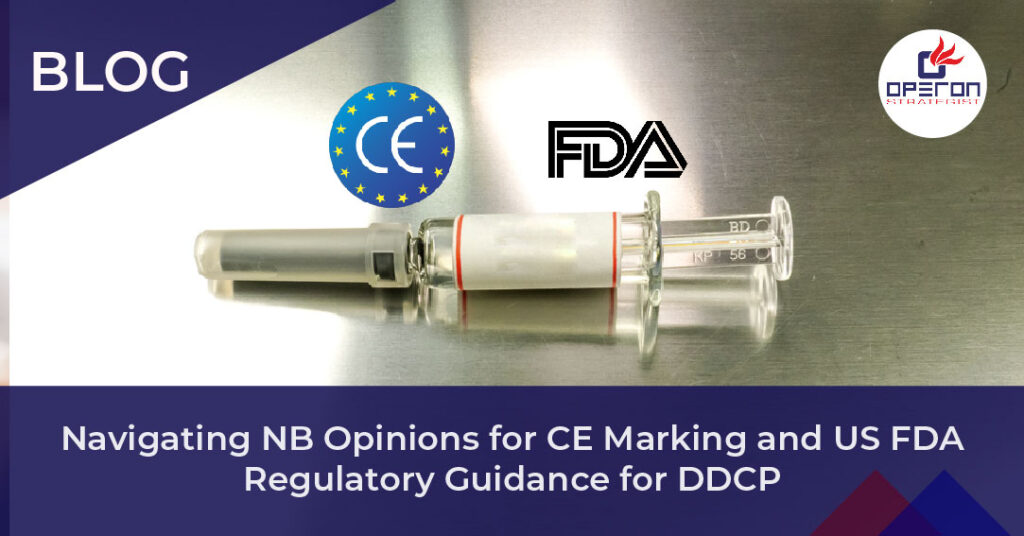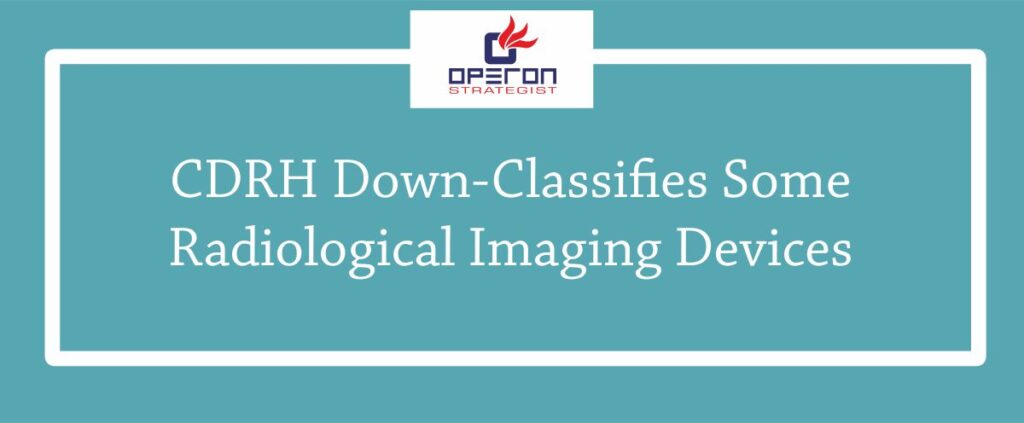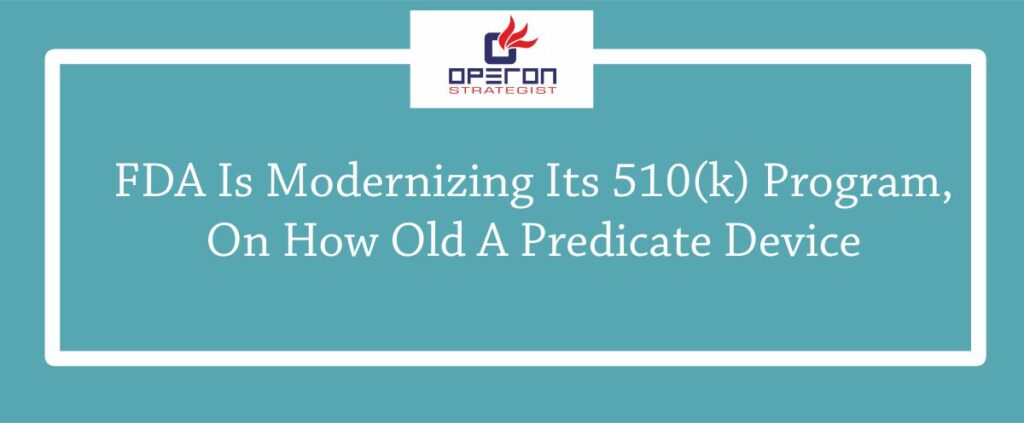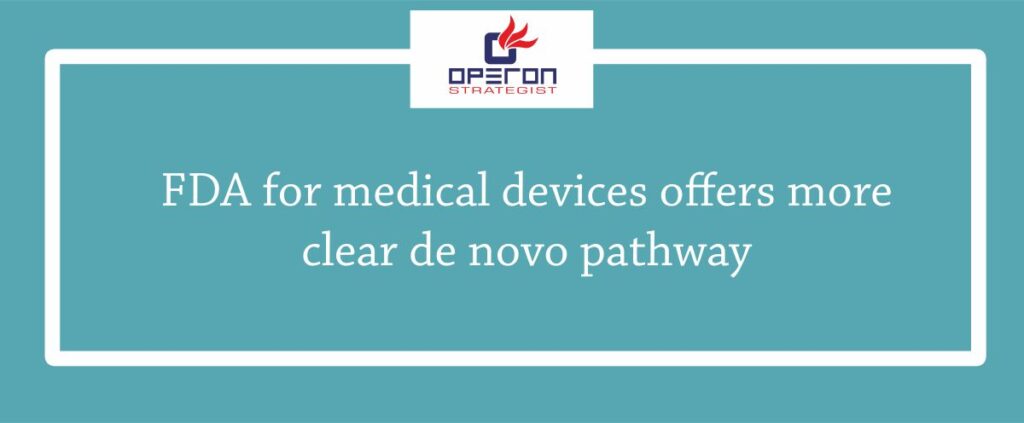Overview - NB Opinions for CE Marking and US FDA Regulatory
Obtaining market approval for new devices is a critical step that requires compliance with rigorous standards. Two key regulatory pathways—those governed by European Notified Bodies and the US Food and Drug Administration (FDA)—play pivotal roles in the market entry of medical devices. When it comes to Drug-Device Combination Products (DDCP), understanding how to navigate both systems can make the difference between a successful product launch and costly delays. In this blog, we will explore the roles of Notified Body (NB) opinions in the European Union (EU) and the US FDA regulatory guidance concerning DDCP.
Click for Drug-Device Combination Products Regulatory Services.
Looking For a Medical Device Regulatory Consultant?
Let’s have a word about your next project
What is Drug-Device Combination Product (DDCP)?
Drug-Device Combination Products (DDCP) integrate both a medicinal product and a medical device into a single entity. These products are unique in that they involve both pharmacological and mechanical modes of action, making their regulation more complex. Examples include prefilled syringes, inhalers with integrated drug components, and drug-eluting stents.
Regulatory Challenges for DDCP
Due to their hybrid nature, DDCPs are subject to a range of regulatory requirements that span both medical device and pharmaceutical regulations. As such, manufacturers must consider multiple layers of regulatory scrutiny, depending on the intended market. Understanding the approval processes in the EU and US is crucial for navigating this regulatory landscape.
Notified Body Opinions in the EU
In the European Union, Drug-Device Combination Products fall under the scope of both the Medical Device Regulation (MDR) 2017/745 and pharmaceutical regulations. The European Medicines Agency (EMA) evaluates the medicinal component, while a Notified Body (NB) is responsible for assessing the device aspect.
Know more about the regulatory services of CE marking for medical devices.
How Notified Bodies Work in DDCP Evaluations
For DDCPs that fall under Article 117 of the MDR, an NB opinion is required when the device component critically impacts the safety and performance of the combination product. The NB will evaluate the device’s conformity with the essential requirements of MDR, such as safety, effectiveness, and quality standards.
If the device component passes the review, the Notified Body issues an opinion that becomes a part of the overall marketing authorization application submitted to the EMA. Without this NB opinion, the EMA will not approve the combination product.
Key Points to Consider in NB Opinions for DDCP:
- Timing: Obtaining an NB opinion can add time to the regulatory approval process, so it’s crucial to engage with a Notified Body early.
- Documentation: Clear technical documentation about the device’s design, testing, and performance is essential for NB approval.
- Device-Drug Interactions: The NB will evaluate interactions between the medicinal and device components to ensure safety and effectiveness.
US FDA Regulatory Guidance for DDCP
In the United States, the regulation of Drug-Device Combination Products falls under the jurisdiction of the FDA. Depending on the product’s primary mode of action (PMOA), it is regulated by the Center for Drug Evaluation and Research (CDER), the Center for Devices and Radiological Health (CDRH), or the Center for Biologics Evaluation and Research (CBER).
Know more about US FDA regulations for medical devices.
Premarket Approval Pathways for DDCP
DDCPs are reviewed based on their primary function, which determines the lead FDA center. If the drug component is the primary action, CDER will lead the review, while CDRH takes the lead if the device is the primary component.
The FDA provides a specific regulatory framework under the Combination Product Regulations (21 CFR Part 3), outlining how these products are assessed. Unlike the EU system, where Notified Bodies play a role, the FDA’s Office of Combination Products (OCP) coordinates between the relevant centers and provides guidance to the manufacturer on the regulatory pathway.
Key Points in FDA Guidance for DDCP:
- Primary Mode of Action (PMOA): Determining whether the drug or device aspect of the product is primary is the first step in selecting the right approval pathway.
- User Safety: The FDA will assess the combination product’s safety and performance, including how the drug and device components interact.
- Human Factors Testing: The usability of the device component must be tested to ensure patient safety and effectiveness.
- Submission Type: Manufacturers may need to file a Premarket Approval (PMA), New Drug Application (NDA), or 510(k), depending on the combination product’s PMOA and risk classification.
FDA vs. NB: Key Differences in Regulatory Approach
While the FDA and EU systems share some common principles, there are notable differences between them. For instance, in the EU, a separate NB opinion is often required, whereas the FDA has a more centralized system where the OCP helps streamline the process.
In the EU, obtaining an NB opinion can add complexity and time to the process, but it provides a valuable checkpoint to ensure the device component complies with MDR requirements. In contrast, the FDA’s PMOA determination helps simplify the regulatory pathway for combination products by clearly establishing which center will take the lead in the review.
Get Expert Consulting Services - NB Opinions for CE Marking and US FDA
Streamlining Regulatory Approval for Drug-Device Combination Products
Navigating the regulatory landscape for Drug-Device Combination Products is complex, but understanding the differences between the EU’s Notified Body opinion process and the US FDA’s guidance is crucial. Early planning, clear documentation, and an understanding of the primary mode of action (PMOA) are vital for ensuring a smooth regulatory process.
Whether you’re targeting the European or US markets, collaborating with regulatory experts like Operon Strategist can help streamline your approval process, ensuring compliance with both NB and FDA requirements. Operon Strategist provides end-to-end support for medical device manufacturers, offering regulatory consulting and turnkey project management services tailored to your needs.




